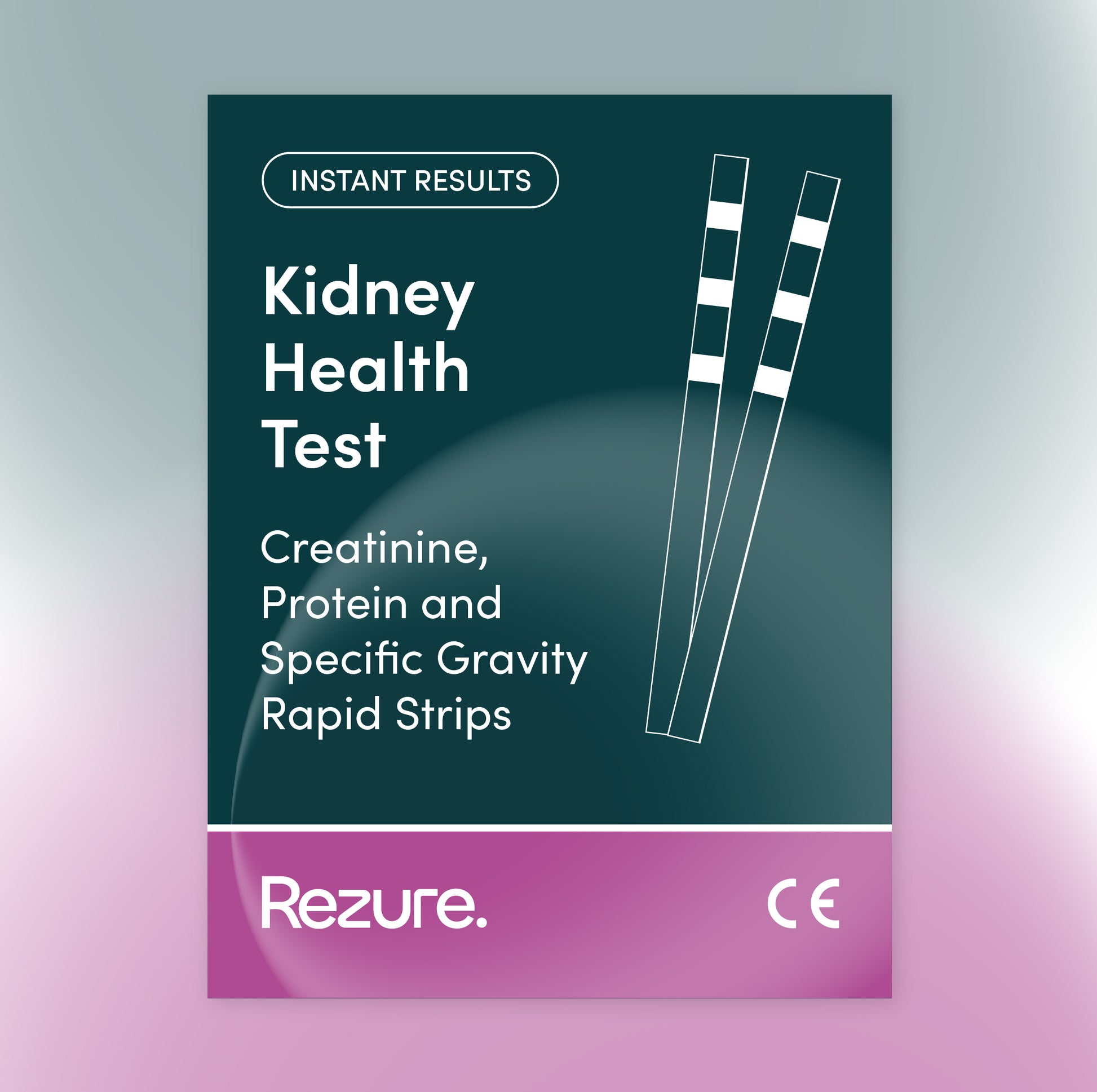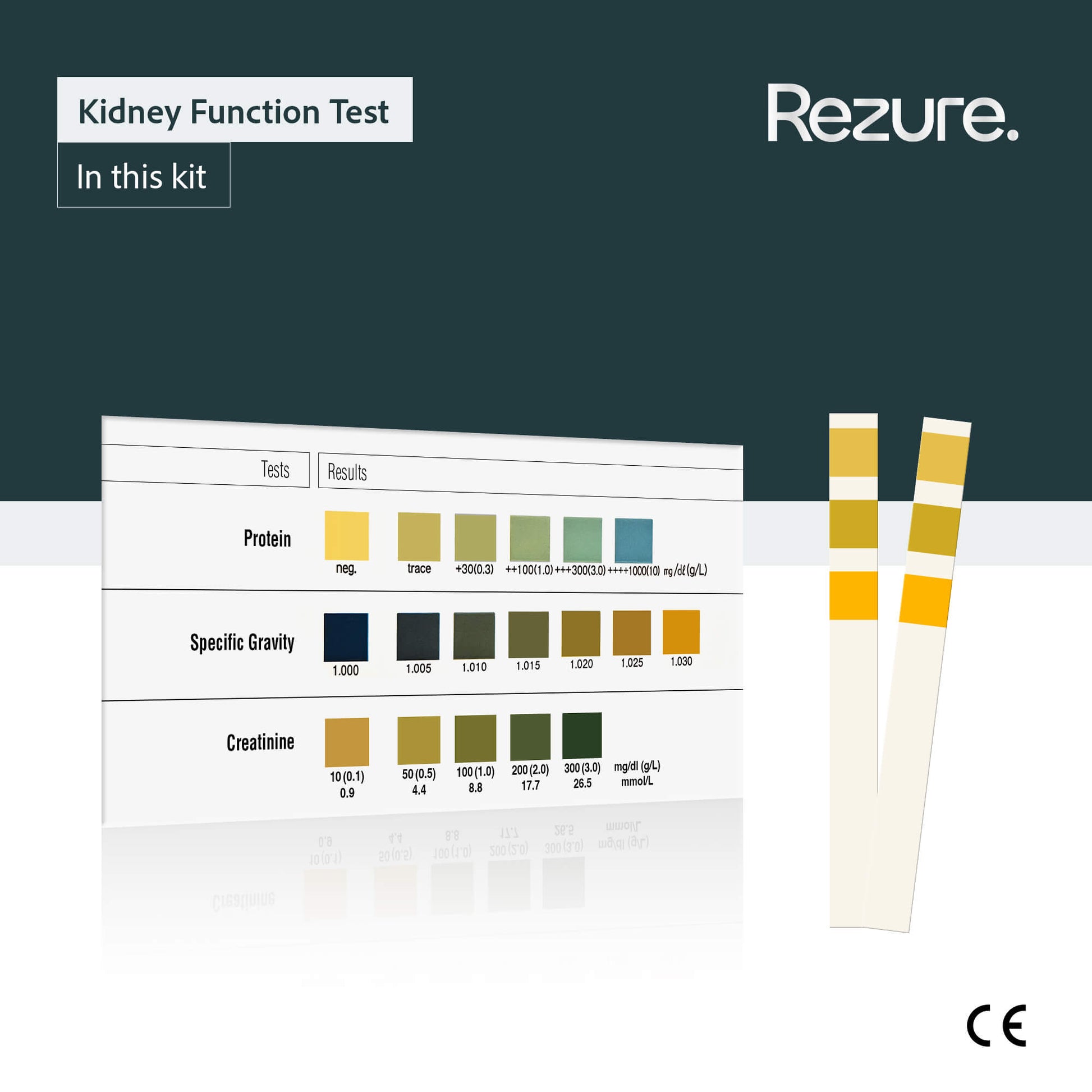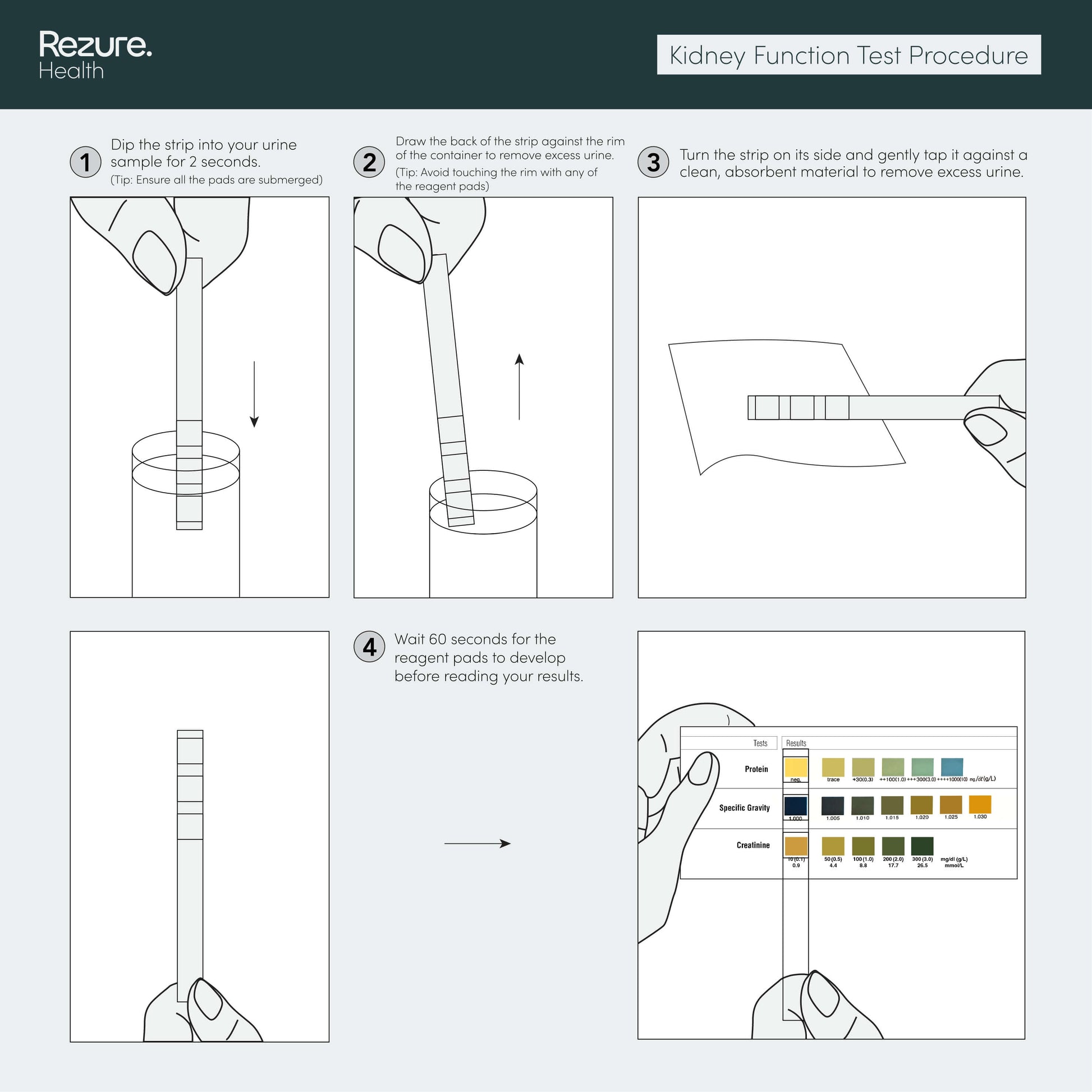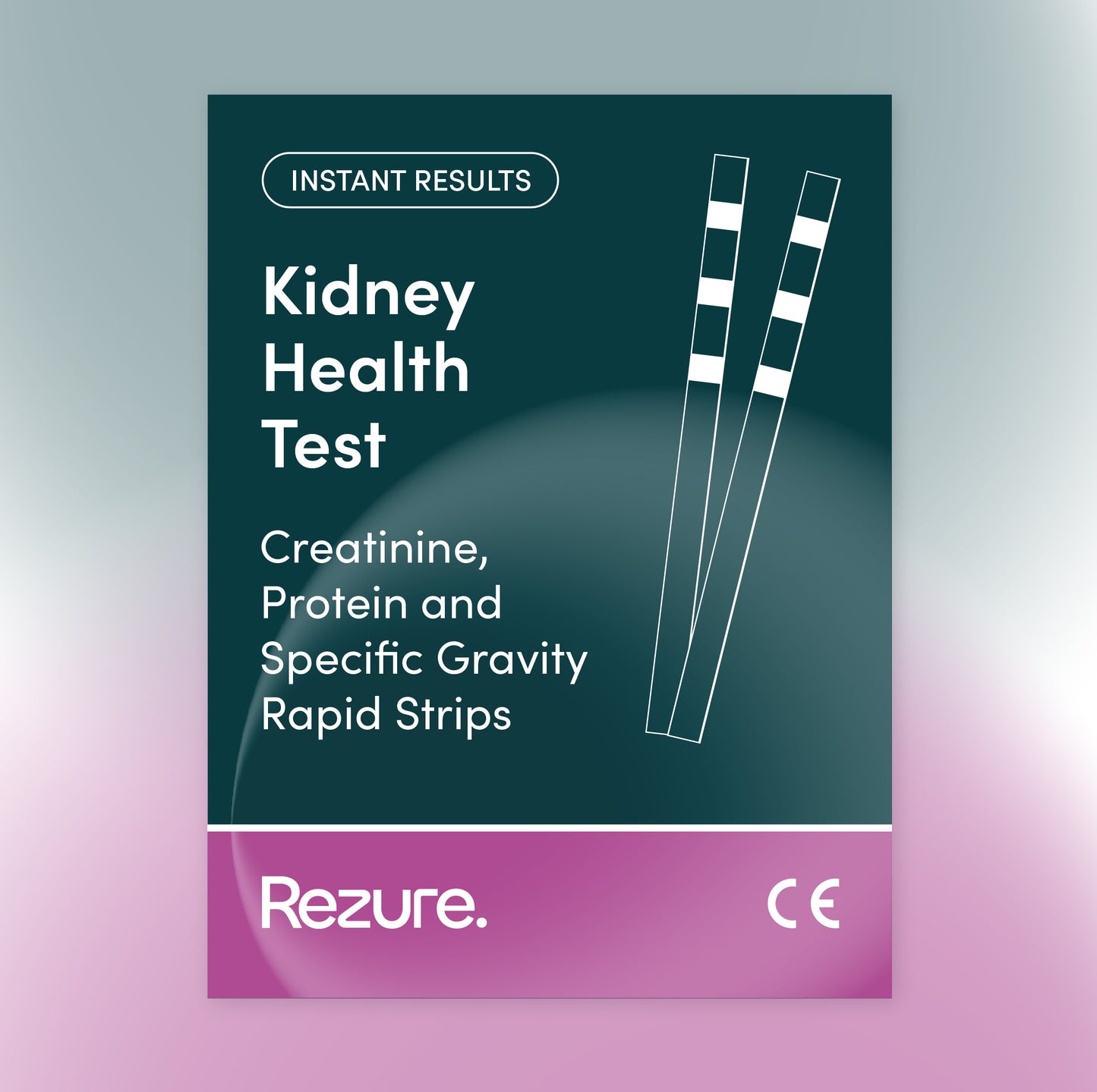
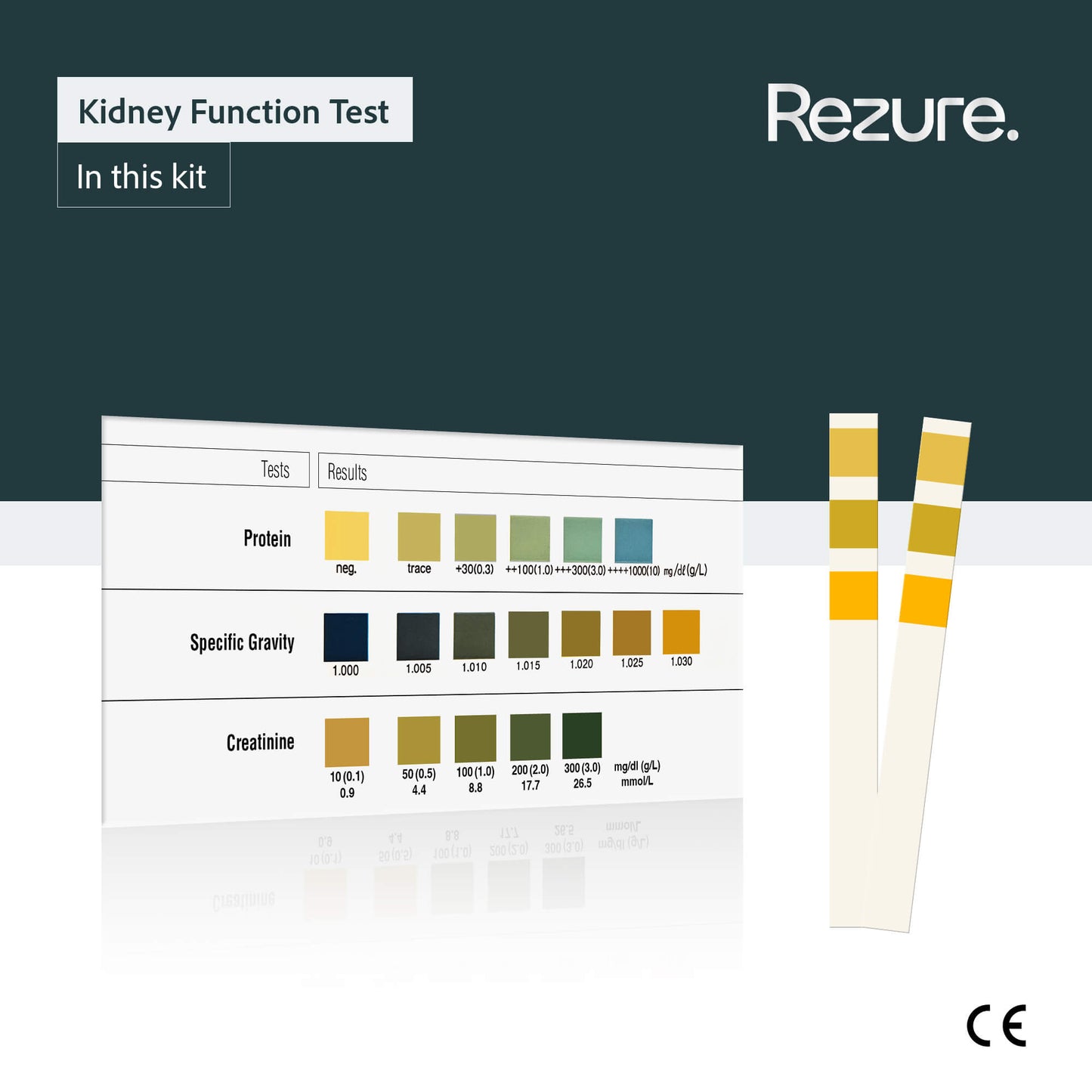
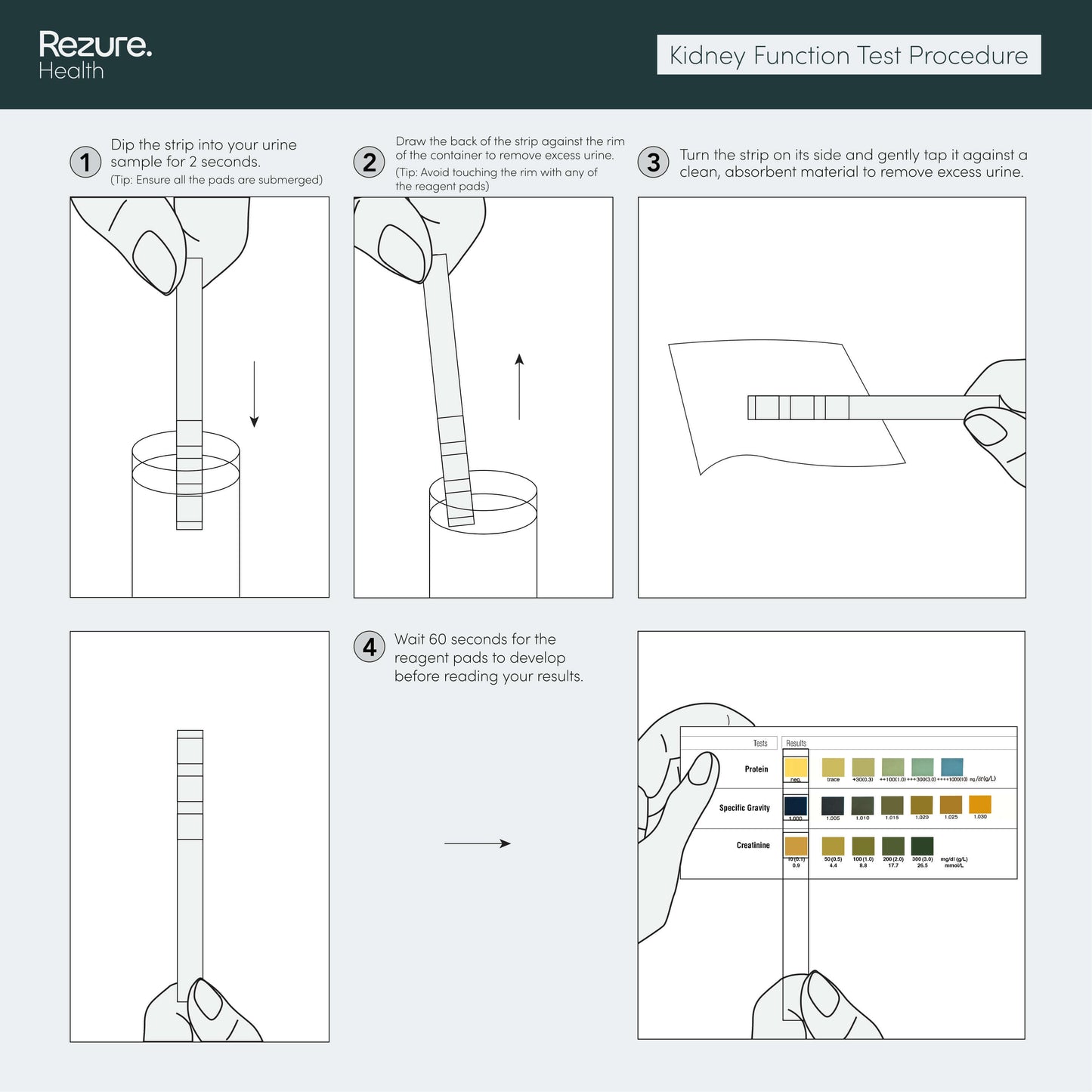
About this test
Brand we're currently stocking: OneStep
Your kidneys play a crucial role in filtering waste, balancing fluids, and regulating essential nutrients. Keeping an eye on their function can help detect potential issues early, even before symptoms appear.
This simple at-home test measures three key markers in urine—creatinine, specific gravity, and protein—which provide insight into kidney health. Just dip the test strip into a fresh urine sample, wait for the reaction, and compare the results against the color chart.
What this test measures:
- Creatinine – A waste product filtered by the kidneys. High or low levels in urine can indicate kidney dysfunction or reduced filtration efficiency.
- Specific Gravity – Measures urine concentration. If too high, it may suggest dehydration or impaired kidney function; if too low, it could indicate excessive fluid intake or kidney disease.
- Protein (Proteinuria) – The presence of protein in urine can signal kidney damage, infection, or early signs of chronic kidney disease.
How this test helps you
How to use this test
Collect urine in a clean, dry container.
Ensure the sample allows complete immersion of all test strip fields.
Fresh morning urine is recommended for the best results.
If immediate testing isn't possible, store the urine sample in the refrigerator, but not frozen.
Bring the sample to room temperature before testing.
Dip the test strip into the urine up to the test area for no more than two seconds.
Ensure all fields are immersed.
Draw the edge of the strip along the brim of the container to remove excess urine.
Turn the strip on its side and tap it once on absorbent material to remove any remaining urine.
Compare the colours of the reagent pads after exactly 60 seconds with the colour chart.
Ensure the strip is horizontal to prevent chemical mixing from excessive urine.
Match the colour of each reagent pad to the corresponding colour on the chart to determine the results for each parameter.
Ensure good lighting for accurate comparison.
